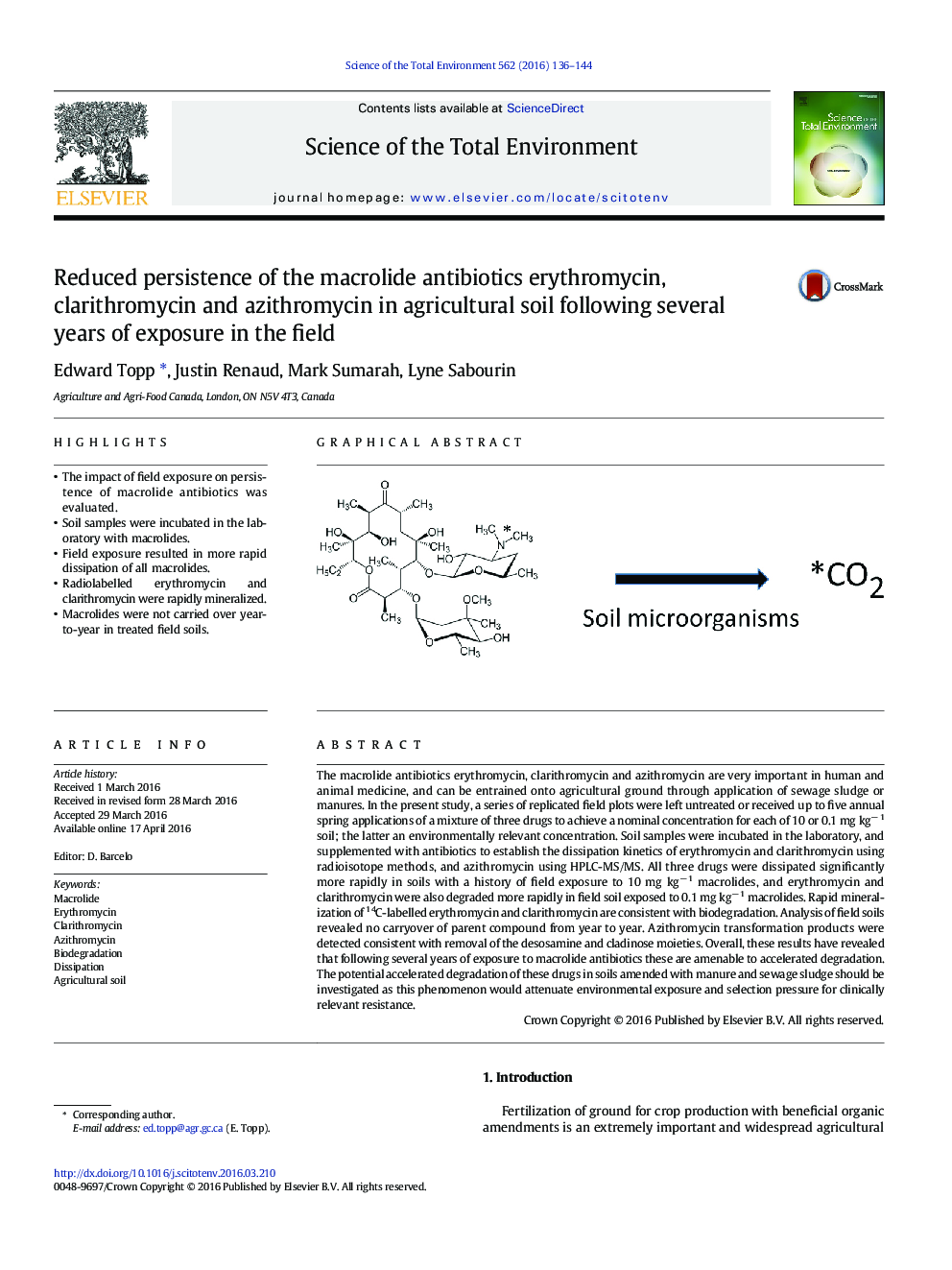| کد مقاله | کد نشریه | سال انتشار | مقاله انگلیسی | نسخه تمام متن |
|---|---|---|---|---|
| 6321638 | 1619726 | 2016 | 9 صفحه PDF | دانلود رایگان |
- The impact of field exposure on persistence of macrolide antibiotics was evaluated.
- Soil samples were incubated in the laboratory with macrolides.
- Field exposure resulted in more rapid dissipation of all macrolides.
- Radiolabelled erythromycin and clarithromycin were rapidly mineralized.
- Macrolides were not carried over year-to-year in treated field soils.
The macrolide antibiotics erythromycin, clarithromycin and azithromycin are very important in human and animal medicine, and can be entrained onto agricultural ground through application of sewage sludge or manures. In the present study, a series of replicated field plots were left untreated or received up to five annual spring applications of a mixture of three drugs to achieve a nominal concentration for each of 10 or 0.1 mg kgâ 1 soil; the latter an environmentally relevant concentration. Soil samples were incubated in the laboratory, and supplemented with antibiotics to establish the dissipation kinetics of erythromycin and clarithromycin using radioisotope methods, and azithromycin using HPLC-MS/MS. All three drugs were dissipated significantly more rapidly in soils with a history of field exposure to 10 mg kgâ 1 macrolides, and erythromycin and clarithromycin were also degraded more rapidly in field soil exposed to 0.1 mg kgâ 1 macrolides. Rapid mineralization of 14C-labelled erythromycin and clarithromycin are consistent with biodegradation. Analysis of field soils revealed no carryover of parent compound from year to year. Azithromycin transformation products were detected consistent with removal of the desosamine and cladinose moieties. Overall, these results have revealed that following several years of exposure to macrolide antibiotics these are amenable to accelerated degradation. The potential accelerated degradation of these drugs in soils amended with manure and sewage sludge should be investigated as this phenomenon would attenuate environmental exposure and selection pressure for clinically relevant resistance.
119
Journal: Science of The Total Environment - Volume 562, 15 August 2016, Pages 136-144
